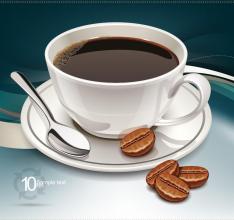Ethiopia Xiachisuo coffee flavor description processing method grinding scale varieties taste introduction
Introduction to the taste of grinding scale varieties by describing the flavor of coffee in Shaqiso producing area of Ethiopia
1. Limu coffee grows between 1400 meters and 2000 meters above sea level. Wash the coffee. Excellent quality, with strong nut aromas, suitable acidity, with the intensity of wine. The annual output is 29000 tons.
2. Jima Coffee grows between 1400 and 1800 meters above sea level. Sun-baked coffee. Slightly sour, with nutty aromas and a long finish. The annual output is 70000 tons.
3. Gambi coffee grows between 1500 meters and 2300 meters above sea level. It is gourmet coffee with moderate acidity and fruity aroma. The annual output is 34000 tons.
4. Yerqin coffee grows from 1500 meters to 2200 meters above sea level. Mocha flavor, with floral and spicy aromas. The average annual output is about 28000 tons.
5. Sidamo Coffee grows at an altitude of 1400-2200 meters. Suitable acidity and high quality. The average annual output is about 37000 tons.
6. Harald Coffee grows on highlands above 2700 meters above sea level. It is the best coffee in the world, medium acidity, intoxicating exotic flavor, with slightly tipsy, dried fruit aroma, is pure mocha coffee. The average annual output is about 26000 tons.
The unique fragrance of Yirgacheffe comes from Yirga, a small town in the northwest of Sidamo province. Yirgacheffe coffee raw bean is one of the most distinctive coffee in the world, rare and expensive. It is produced in the plateau of Ethiopia's Sidamo province (2000 meters above sea level). It is an outstanding representative of washed coffee in Africa. It has always been famous in the eyes of global coffee connoisseurs. Rare washed high-quality Elaraby plus coffee, suitable for all degrees of baking, perfectly showing a fresh and bright aroma of flowers and fruits. Beautiful and complete bean shape, is the general mocha incomparable high-grade coffee. It has unique fruit aromas of citrus and lemon, with aromas of jasmine, sour taste similar to wine, clean and unmixed taste, just like freshly boiled citrus fruit tea with a long finish. Full of floral and citrus aroma, the performance is exciting, moderate roasting has a soft sour taste, deep roasting gives off a strong aroma, rich and uniform taste is the most attractive feature of Ethiopian Yega snow coffee, known as the best coffee beans in Ethiopia, is the representative of East African boutique coffee, and Yega snow coffee is the most unique coffee in the world today.
Coffee is Ethiopia's most important export cash crop and the main source of Ethiopia's foreign exchange earnings. Ethiopia's coffee exports account for about 3% of the world market, making it the eighth largest coffee exporter in the world. Coffee exports increased steadily from 58000 tons in 1990 to 110000 tons in 1995-1996 and remained at this level in the following years. The export volume exceeded 110000 tons from 2001 to 2002 and reached 127000 tons from 2002 to 2003. As the price of coffee on the international market has been declining for a decade, Ethiopia's foreign exchange earnings have been seriously affected. Before the sharp drop in coffee prices, coffee exports accounted for more than half of Ethiopia's foreign exchange earnings, but now they account for only about 35 per cent. But according to the International Coffee Organization, coffee prices rebounded in 2002, rising from 41 cents per pound in September 2001 to 52 cents per pound in 2002 and 59.7 cents per pound in 2003. The average price in March 2004 was 60.8 cents per pound, an increase of 50% over September 2001. This is excellent news for Ethiopia.

Important Notice :
前街咖啡 FrontStreet Coffee has moved to new addredd:
FrontStreet Coffee Address: 315,Donghua East Road,GuangZhou
Tel:020 38364473
- Prev

Columbia Linglong Coffee Bean Flavor description Taste Grinding scale Variety Manor characteristics
Columbia Linglong Coffee Bean Flavor description Taste Grinding scale Variety Manor Features: the annual temperature is about 18 degrees Celsius, the annual rainfall is 2000 to 3000 mm, latitude 1-11 15 north, longitude 72-78 west, and the specific range of elevation can exceed 2.000 meters. By a special combination of factors, the latitude, altitude, soil,
- Next

Introduction to the characteristics of Coffee Bean Flavor description and taste treatment in Sidamo, Ethiopia
Flavor description of coffee beans in Sidamo, Ethiopia: dry aroma: berries, tropical fruits, fermented wine, jujube, tea, milk chocolate. Wet aroma: medium sweet and sour aromas of sun berries, citrus, slightly fermented fruit, fruit wine. Palate: comfortable and interesting sour fruit, good sweetness and low thickness. Recommended production method
Related
- Detailed explanation of Jadeite planting Land in Panamanian Jadeite Manor introduction to the grading system of Jadeite competitive bidding, Red bid, Green bid and Rose Summer
- Story of Coffee planting in Brenka region of Costa Rica Stonehenge Manor anaerobic heavy honey treatment of flavor mouth
- What's on the barrel of Blue Mountain Coffee beans?
- Can American coffee also pull flowers? How to use hot American style to pull out a good-looking pattern?
- Can you make a cold extract with coffee beans? What is the right proportion for cold-extracted coffee formula?
- Indonesian PWN Gold Mandrine Coffee Origin Features Flavor How to Chong? Mandolin coffee is American.
- A brief introduction to the flavor characteristics of Brazilian yellow bourbon coffee beans
- What is the effect of different water quality on the flavor of cold-extracted coffee? What kind of water is best for brewing coffee?
- Why do you think of Rose Summer whenever you mention Panamanian coffee?
- Introduction to the characteristics of authentic blue mountain coffee bean producing areas? What is the CIB Coffee Authority in Jamaica?

